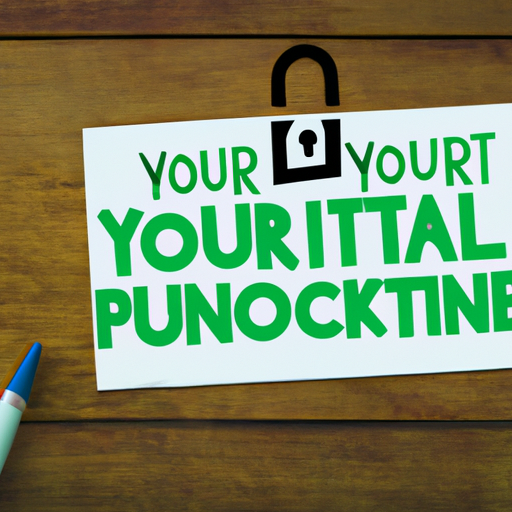Introduction: Why Creative Skills Matter in the Modern World
In today’s fast-paced and ever-evolving environment, creative skills have become crucial for both personal fulfillment and professional success. Whether you’re an artist, entrepreneur, educator, or simply someone seeking innovative solutions to everyday problems, understanding and refining your creative abilities can set you apart. This comprehensive guide shares actionable creative skills tips, explores the benefits of honing your creativity, and offers practical exercises for unlocking your full potential.
What Are Creative Skills?
Creative skills refer to the ability to think outside the box, generate unique ideas, and solve problems in inventive ways. These skills encompass a wide range of abilities, including critical thinking, visualization, storytelling, and design thinking. Cultivating creativity isn’t limited to artists or designers; it benefits professionals across fields from marketing to engineering.
- Imagination & Visualization
- Problem-solving abilities
- Resourcefulness
- Collaboration and communication
- Adaptability and open-mindedness
Top Creative Skills Tips for Everyday Life
Unlocking creativity doesn’t happen overnight. It requires conscious effort, the right mindset, and daily practice. Here are some proven tips to boost your creative thinking:
- Embrace Curiosity: Ask questions and challenge assumptions. Curiosity fuels discovery and innovation by encouraging you to explore new perspectives.
- Practice Brainstorming: Allocate time for unstructured idea generation. Use mind maps, lists, or digital tools to capture your thoughts without judgment.
- Limit Distractions: Create a dedicated space for creative work. Turn off notifications and set aside focused time to let your mind wander productively.
- Seek Inspiration: Expose yourself to different art forms, cultures, and knowledge domains. Inspiration often comes from unexpected sources.
- Collaborate: Engage with others to gain feedback and fresh insights. Teamwork can spark new ideas and encourage innovative solutions.
- Experiment & Take Risks: Don’t fear failure—see it as a learning opportunity. Experimentation is vital for creative growth.
- Practice Mindfulness: Engage in meditation or simple breathing exercises. Mindfulness helps reduce mental clutter and sparks clearer, more creative thinking.
Creative Skills and Their Role in Career Development
Employers in all industries value candidates who can innovate and adapt. Mastery of creative skills leads to improved problem-solving, better communication, and increased resilience. Here’s how creativity can boost your professional journey:
- Leadership: Creative leaders foster an open-minded work environment and encourage teams to explore novel solutions.
- Effective Communication: Storytelling and visualization skills help convey complex ideas simply and persuasively.
- Productivity: Creative thinking streamlines processes and enables more efficient time management.
- Adaptability: Creative professionals are more flexible and can pivot quickly in the face of change.
Practical Exercises to Enhance Your Creative Skills
Creativity is like a muscle—the more you use it, the stronger it gets! Here are some effective exercises you can try:
- Daily Doodling: Spend 10 minutes sketching anything that comes to mind. This helps unlock visual thinking and spurs new ideas.
- Idea Journaling: Keep a notebook or digital document for random thoughts, dreams, or observations.
- Role Reversal: Solve a problem from someone else’s perspective to encourage empathy and fresh thinking.
- Random Word Association: Choose two unrelated words and brainstorm how they might connect. This exercise stretches your associative thinking.
- Creative Constraints: Set limits (e.g., create a story using only 50 words) to challenge your inventiveness.
Design Thinking: A Framework for Creative Problem Solving
Design thinking is a human-centered approach to innovation that integrates the needs of people, the possibilities of technology, and the requirements for business success. It involves five key stages:
- Empathize: Understand the user’s experiences and challenges.
- Define: Clearly articulate the problem you want to solve.
- Ideate: Generate a wide range of possible solutions.
- Prototype: Create simple models to visualize your ideas.
- Test: Gather feedback and refine your solution.
Applying design thinking can enhance your creative skills, making you a more effective problem solver in any context.
Overcoming Creative Blocks: Tips and Tricks
Everyone faces creative blocks from time to time. Here’s how to overcome them and keep your ideas flowing:
- Change Your Environment: A new setting can stimulate fresh ideas.
- Take Breaks: Step away from your work to let your subconscious process information.
- Engage in Physical Activity: Movement increases blood flow and boosts brain function.
- Connect with Creative Communities: Join groups, forums, or workshops to share experiences and gain motivation.
- Practice Gratitude: Reflecting on positive aspects of your life can shift your mindset and open up creative pathways.
Conclusion: Start Your Creative Journey Today
Developing your creative skills is a lifelong adventure that can transform every area of your life. By integrating these creative skills tips into your daily routine, you’ll unlock new opportunities, build confidence, and discover your unique creative voice. Remember, creativity is not a talent—it’s a habit that anyone can nurture.
Begin today by experimenting with the exercises above, embracing curiosity, and allowing yourself the freedom to imagine, explore, and create.
